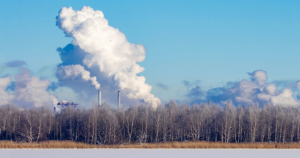
Putin announces Russia to go carbon neutral by 2060

Amid intensifying discussions about climate change, President Vladimir Putin said Wednesday that Russia will aim for carbon neutrality by 2060. This is the most ambitious official target to reduce greenhouse gas emissions ever announced in Russia.
- Speaking at the plenary session of Russian Energy Week in Moscow, Putin told attendees that Russia will “strive for carbon neutrality of its economy,” and that this should be achieved by 2060. At the same time, he could not resist criticizing Europe’s energy transition, blaming the rise of renewables for the continent’s current energy problems. “Systemic flaws have been gradually introduced in European energy over the past decade, which led to a major market crisis… Thankfully, problems of this kind have no place in Russia,” said Putin.
- Details about Russia’s plans for carbon neutrality were outlined in the country’s low-carbon development strategy, which envisages a baseline scenario of a 0.6 percent increase in emissions through 2030, and a fall of 79 percent from the current level (89 percent of the 1990 level) by 2050.
- Notably, a previous government strategy did not envisage achieving carbon neutrality, while reduced emissions were slated to come primarily through increased absorption of greenhouse gases by Russia’s forests.
- Putin’s new plan still relies on the rising absorption capacity of forests and other ecosystems, but much less than before. Among new measures to reduce carbon emissions are carbon pricing (quota systems, regulations, incentives for low-carbon technologies, and tax adjustments for mineral extraction), green finance, support for energy origin certificates and the creation of a public reporting system.
- For the first time, Russia’s climate strategy is being linked to economic growth. “We are factoring in global competitiveness and sustainable economic growth in Russia in the context of a global energy transition,” Economic Development Minister Maxim Reshetnikov told Kommersant. To implement the strategy, Russia will require cumulative investment in emissions reduction. Through 2030, this would run at 1 percent of GDP, rising to as much as 2 percent of GDP between 2031 and 2050.
- The government reportedly set-up a working group in June to look at ways of adjusting to the global energy transition and it was reported that Deputy Prime Minister Andrei Belousov would be in charge. Others involved in the issue included Sberbank head German Gref and 1990s privatisation tsar Anatoly Chubais, who is now Putin’s ‘representative for international relations in sustainable development’.
- To achieve carbon neutrality, Russia will need to restructure every part of its economy, Chubais said the day after Putin announced the new target. According to Chubais, Russia will need to create up to a dozen new industries, including building a hydrogen industry from scratch.
Why the world should care: Russia ignored the climate crisis for many years but the issue now appears to have reached the highest levels of government. Russia’s new carbon neutrality goal has won praise from experts, who said that, with these plans in place, Russia need not be embarrassed to attend next month’s UN Climate Conference in Glasgow.




